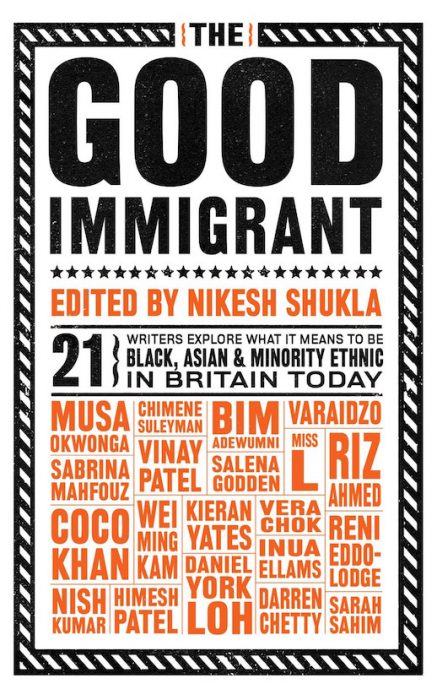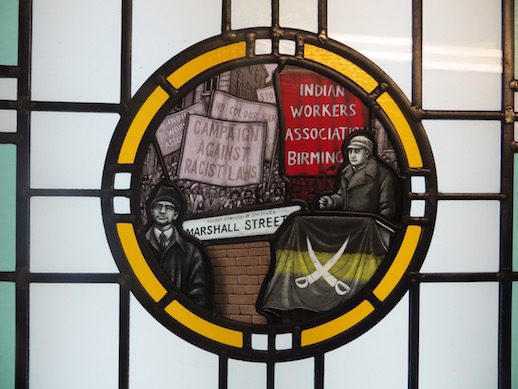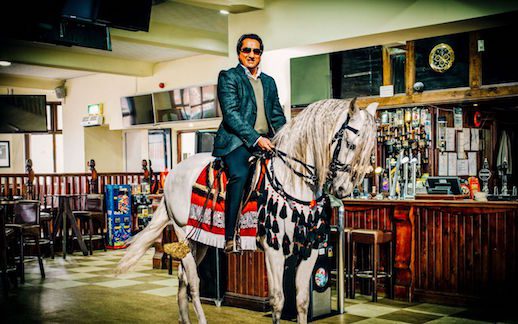…In which, as the year comes to its end, our friends and collaborators look back on the past twelve months and share their moments;
In the Middle Ages it was understood that birds migrated to the southern hemisphere. By the 1700s this knowledge had been un-known; forgotten. English polymath Samuel Johnson wrote confidently that swallows ‘certainly sleep all winter’ before going on to describe how they flew round in circles then threw themselves underwater and slept the winter away on the river bed. Sometimes knowledge gets lost along the way.
Humans migrate, always have done, always will, just like the migratory sparrows I noticed this year in Montréal, Lisbon and Lewisham, or the arctic tern, which this year was charted making the longest migration on record. I wonder which human made the longest migration of 2016, and I wonder why we don’t know that person’s name or anything about them.
We seem to have forgotten, or been encouraged to forget, that migration is normal; that it’s biological. As the New Scientist said in April in their brilliant cover story: “Humans migrate. It is a characteristic of our species.” This is especially true in times of great change and if nothing else, 2016 has been a time of great change.
Like an estimated six million people in the UK I have an Irish grandparent – or at least I did. My grandmother Mairé arrived at her interview for nursing college in Birmingham in her school uniform and didn’t return to the country of her birth until she was 90 years old. “I didn’t realise how Irish I was,” she said to me afterwards, when she was not too far from another transmutation, into ashes. Her birth, marriage and death certificates arrived in the post as I applied for post-Brexit dual citizenship. Paperwork is the human equivalent of migratory watering holes, giving you what you need to reach the next stage. They’re reformatted trees we perch in to expedite our journeys. As a side note, one of the best reformatted trees I read this year was The Good Immigrant, in which writers including Riz Ahmed speak with humour, honesty and crystal clarity about their diaspora perspectives. I can’t recommend it enough.
The fat man on a bike who I saw pedalling furiously through Greenwich Park shouting immigrants all out like a broken, crappy, record probably wouldn’t be too keen on it though. I wonder where his grandparents were from, or were their grandparents were from. Later in the summer I overheard a conversation between three friends walking down the street between Lewisham and Eltham. The woman speaking had long brown hair, up in a high ponytail. “He told me to go back home,” she said, spitting each word out, proper south London, “and I was like ‘I’m an eighth Maltese and I’m from Mitcham you cunt – where’s home?’”
We might as well send the sparrows home, eh.
My best day out this year involved a trip to Smethwick in the West Midlands. I went on a Desi pub crawl organised by Creative Black Country – ‘Desi’ referring to the Indian diaspora – with writer friend Rahul Verma. These pubs are owned by men, mostly of Punjabi heritage whose fathers, uncles and brothers had answered the call for workers at the West Midlands smelting factories in the 1950s and ‘60s. There’s a strong drinking culture in the Punjab and the workers wanted to go for a pint after work, but they were refused entry to many pubs on the basis of their skin colour. Avtar Singh Jouhl from the Indian Workers Association reached out to Malcolm X who came to Smethwick to show solidarity with the workers, nine days before he was assassinated in February 1965. Half a century later and there’s a rich culture of British Asian pubs in the area and six of them have this epic history commemorated in stained glass windows, photographic portraits and a mosaic. Daytrips are great. This one was excellent, not least because it felt like a good way to reclaim one of our great social spaces from the bloated hands of UKIP ‘blokes’.
There were personal migrations, too. My son left home to go to university and I went into what I’m calling ‘yes mode’; a telescoping out of perspective where I’m flexing the affirmative. The run up to him leaving surprised me with its overwhelming echo of pregnancy – both being acts of gestation with a particular, anticipated cliff edge when A becomes irrevocably B.
But to return to the theme, I’m with Lemn Sissay who says in his poem Whale Translation that ‘migration is our nature’. Diverse ecosystems tend towards resilience and if nothing else, we’re going to need that particular attribute in abundance.
Emma Warren on Caught by the River / on Twitter


